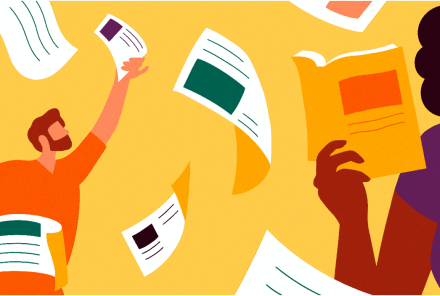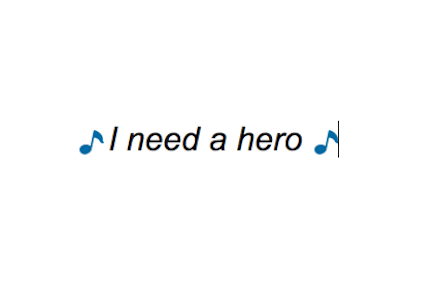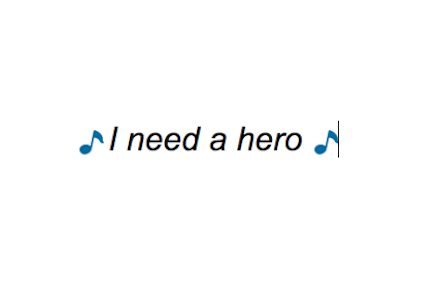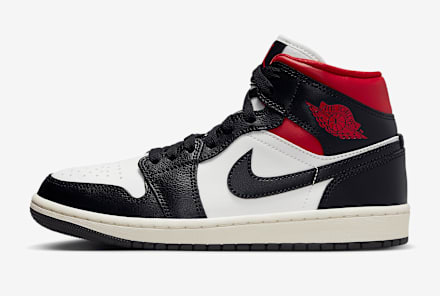Advertisement

Everybody has a handful of "friends" in their life about whom they have pretty mixed feelings. But when do these relationships become a problem, and how can you tell?
We can characterize all our relationships along two dimensions of negativity and positivity. With our true friends, we have high levels of positivity and low levels of negativity. With our enemies, we have the opposite—these relationships are clearly toxic. When it comes to our acquaintances, we don't spend much time and energy on them because we have low levels of both positivity and negativity with them. But then, what about the people with whom we experience both high positivity and high negativity? Aka, the people who we're ambivalent, or confused, about?
While people tend to think that clearly toxic relationships are the unhealthiest kinds, ambivalent relationships can actually be even more draining. The hallmarks of an ambivalent relationship are that you never know if you can trust the person, where you stand with them, or if you even enjoy hanging out with them. Sure, you may engage in activities that are fun together or as part of a wider circle of friends, but there are many times when you question whether the fun is healthy or representative of any actually valuable connection. But unlike the decidedly "toxic" enemy or acquaintance with whom you wouldn't sip midweek cocktails, the ambivalent friend may be texting you nonstop and inviting you to dinner. And because this relationship languishes in the gray zone of confusion, you feel obliged to think the best of it, work harder, and say yes.
Emotionally, this type of relationship puts a strain on our psyches. We're spending considerable head space, time, and energy on these people who don't quite come through the way they say they will and who don't always bring us real joy. It requires more emotional and mental resources to deal with the inconsistency inherent in these mixed-bag relationships, and some studies have found them to be detrimental to your health and productivity.
How do we end up with these kinds of "friends"? Sometimes we conflate the length of the relationship with its strength. But time is not an indicator of quality—before long, a relationship cobbled together haphazardly celebrates its fifth anniversary, and the still-questionable friend gets to use this to wax sentimental. Otherwise, the ambivalent relationship may be held together by the duct tape of convenience; with more interactions, there is more evidence to persuade ourselves that the relationship has positive aspects. We convince ourselves there is positivity in these friendships—a compliment here, a shared memory there—and tell ourselves it's not so bad. And you can bet this is even more likely to happen for people high in empathy who tend to actively seek to see only the best in others.
And yet, the truth remains. You are drained after the interactions. You might often find yourself trying to justify spending more time with them in future. Unlike your good friends with whom you spend time because you want to and you miss them, you say yes to these quasi-friends because you're driven by guilt and obligation.
The bottom line: High negativity, no matter how much positivity is also in the relationship, wears you down.

Here are three red flags of high-negativity friendships despite their simultaneous positivity:
1. "Oh my God, you won't believe what happened!"
We all go through periods when life has beaten us down, and this friend may have listened to us sob in our PJs over a pint of Häagen-Dazs—and so we think, "They've been there for me, so I need to be there for them." The key difference is that this person's life seems to be a never-ending train wreck, with the drama engineered through self-sabotage and then blaming the world, and with you always having to be the one to pick up the pieces.
2. "I'm sorry you feel this way."
This statement is one of the vilest forms of passive-aggressiveness, and ambivalent friends use it often. On the surface, it appears to validate your feelings—something positive. However, what this phrase really does is make you feel bad for having your feelings. It's a way to alert you that your feelings are not actually welcome in the friendship, and this person has no actual interest in caring for your emotional well-being.
3. "Me, me, me!"
Self-absorbed personalities aren't necessarily always bad—these people can be entertaining and fun as long as you're willing to tolerate them yanking the spotlight always. Whether grandiose and loud, or tugging at your heartstrings with another sad and exhausting story, these narcissists expertly find a way to hijack the focus onto them, no matter how disparate the subject matter is. You might not mind on the day-to-day, but these are the people who can easily turn toxic if you bestow too much trust on them: They may appear to listen to your woes by validating your feelings—before turning it into a competition. Prime examples include how they'll tell you their pain is bigger or how much stronger they are ("How come I am not like that?" "I'm not scared of XYZ"). Eventually, you feel both listened to and wrong-footed. Is the front-row seat to all their grandiose stories worth it in the end?
So how do you walk away from an ambivalent relationship that drains you?
First, treat the relationship as a balance sheet—draw up the pros and cons, without considering the length. Sometimes, we can't acknowledge the less desirable sides of others because we feel bad for thinking negatively. My friend and psychotherapist Jonathan Marshall recommends that you write down the worst thoughts you have about this person that you'd typically never say out loud. This exercise can heal your guilt and discomfort. "You can turn anyone into a good person," he says. "But faith in people's goodness is not going to protect you from being hurt."
Next, enforce a clear boundary by telling them—even by text message—that you're ending the relationship. However, if they often bombard you, are excessively dramatic, or just aren't someone who would notice if you didn't text, then it might be worth not saying anything at all. Just let them disappear—and if they do text you, only then should you let them know your decision.
More importantly, if you find that the majority of your relationships are ambivalent, perhaps it's time to ask yourself what makes you prone to them. Sometimes, we over-give because we think people-pleasing is our life's purpose; and indeed, it can feel good to be wanted or useful. Or we believe these relationships are all we deserve. Whatever the reason, know that you deserve healthy relationships that fuel your growth.
Friendship breakups are tough, but clearing space means you can nurture the truly healthy relationships that really matter. Just as art galleries curate their collections, your relationships must be curated for your well-being. As I always tell my over-giving clients, we give best when we give from a full cup. When we're selective about our relationships, we have so much more to offer. Then, just as the great friendships rejuvenate, nourish, and support us, so can we do the same for them.
Looking to create a solid network of friends? Here's exactly how to find your real tribe.
Watch Next
Enjoy some of our favorite clips from classes
Enjoy some of our favorite clips from classes
What Is Meditation?
Mindfulness/Spirituality | Light Watkins
Box Breathing
Mindfulness/Spirituality | Gwen Dittmar
What Breathwork Can Address
Mindfulness/Spirituality | Gwen Dittmar
The 8 Limbs of Yoga - What is Asana?
Yoga | Caley Alyssa
Two Standing Postures to Open Up Tight Hips
Yoga | Caley Alyssa
How Plants Can Optimize Athletic Performance
Nutrition | Rich Roll
What to Eat Before a Workout
Nutrition | Rich Roll
How Ayurveda Helps Us Navigate Modern Life
Nutrition | Sahara Rose
Messages About Love & Relationships
Love & Relationships | Esther Perel
Love Languages
Love & Relationships | Esther Perel












